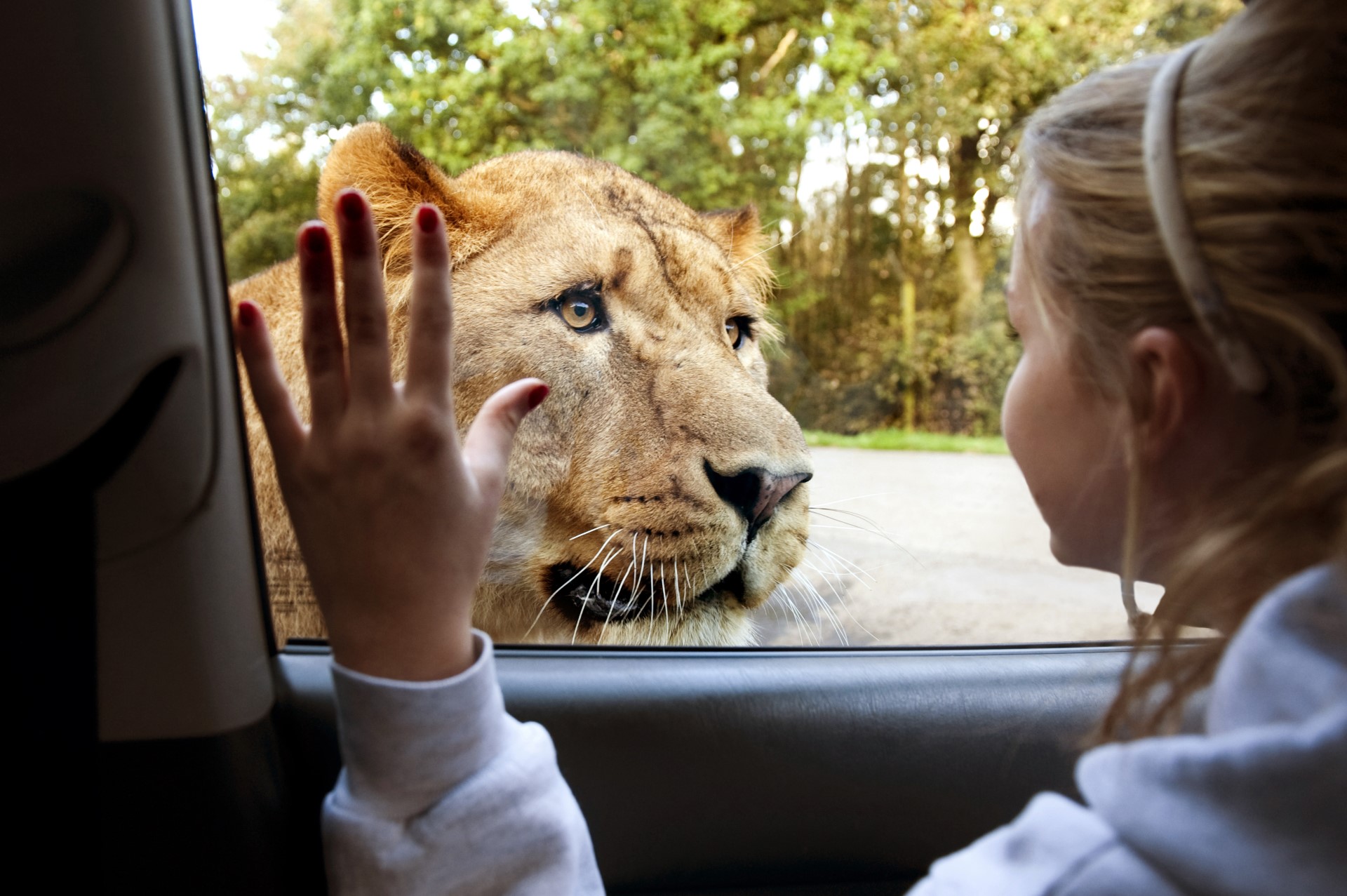Animal Magic at Knowsley Safari

By Nikki Mallott, Knowsley Safari
Nikki Mallott, head of learning, discovery, research, and conservation at Knowsley Safari is an expert in using nature and the great outdoors to benefit education. Here, she outlines how human and animal interactions can have a positive effect on schoolchildren’s learning.
Children love animals. Fact.
There’s something about furry, wide-eyed, wet-nosed creatures that young people find irresistible, and it all started from day one. As babies develop, they’re naturally attracted to things that move and interact with them, especially if they make interesting noises, are a curious shape or feel good to touch. Children’s connection with animals becomes stronger as they get older and become more familiar with different species.
Some of it’s down to science. Humans benefit physiologically from being with animals, largely due to the release of oxytocin, also known as the ‘love hormone’, which is released when we interact with animals. Oxytocin increases feelings of happiness, while inhibiting the production of stress hormones, so schoolchildren who interact with animals, even just visually, will have more oxytocin, giving them a more positive approach to tasks and learning, an ideal state for them to absorb a whole variety of subject matter.
The anti-stress effect
It’s no wonder anxiety has become synonymous with young people; children have more messages, instructions and choices in this chaotic world than ever before, all while navigating a virtual existence and one IRL (in real life).
Animals can help again by easing the pressure. It’s well-documented that watching animals can reduce levels of stress, so children seeing an animal happy, playing or eating in its natural habitat, whether that be via video or through a minibus window, will have a calming effect, making them more conducive to learning.
The good news is, children don’t have to physically be with an animal to experience the ‘animal magic’ effect. Showing children pictures or videos of animals in the classroom will create excitement, boost confidence and help them develop communications skills as they discuss the animals’ traits and behaviours. The power of story is another way to benefit from animals without needing to be with them physically; children will relate to the animal characters, finding it easier to digest a deeper message.
Knowsley Safari welcomes hundreds of school children each term, as well as offering workshops in schools across Liverpool City Region and online live stream sessions for those further afield. Connecting the pupils with nature encourages them to learn about wildlife, including how to be calm around animals, how to thrive (and survive!) outdoors, from learning the difference between predator and prey, to identifying the smallest bug to the biggest carnivore. The children are focused because they’re enjoying themselves, meaning stress is at a minimum.
If you’re unable to take your class to a safari, ask the safari to come to you; most deliver school roadshows which tie into the curriculum and provide pupils and teachers with variety from the day-to-day timetable.
Communication benefits
Animals help children develop speaking and listening skills which can be applied to a variety of curriculum subjects. Pupils can talk to a teacher or friend about where an animal originates, how it survives and what it eats and then relay the same information to a parent or sibling, which is all confidence-boosting communication.
Similarly, animals can fuel a child’s creativity. Watching an animal wash chaotically, dig intensely, snore loudly or eat messily can lead children to mimic the behaviour and this interaction can morph into role play.
Empathy and emotions
When taking a class to a safari, children will encounter an animal’s gaze through a coach window, or over a perimeter fence and they will feel unprejudiced companionship. An animal doesn’t worry about a child’s appearance, where they live or, for older children, how many ‘likes’ they have on a social media post. Animals can help children develop an awareness of others. They’ll understand why it’s important to be gentle and develop empathy as they recognise when animals are too hot, too hungry or lonely, an important step in becoming more considerate of others.
Children can discover that animals experience the same emotions as themselves, including being frightened if they hear a loud noise or feeling pain if they hurt themselves. This is reassuring for children, as they realise these are normal feelings.
A physical boost
It’s no secret that outdoor learning is beneficial for boosting physical, social and communication skills, among others. During Knowsley Safari’s on-site Wild and Well sessions, younger children (Reception and Year 1) get plenty of steps in as they explore a woodland trail, where they identify native bug and bird species, while older children in Years 3 and 4 will build shelters and campfires, while learning about animals in their natural habitats, all promoting the importance of physical activity and teamwork and some of these activities can be adapted to your own school outdoor environments.
Knowsley Safari offers education sessions teaching pupils about animal habitats, native species, seasons, and conservation, as well as helping children build confidence and develop social and practical skills. For further information about the online, on-site or in-school sessions, please contact the Education Team here.
Nikki Mallott leads the multi-award-winning Learning and Discovery team at Knowsley Safari in Merseyside. The team has just added another award to its collection, a silver BIAZA (British & Irish Association of Zoos and Aquariums) Work Skills award.







